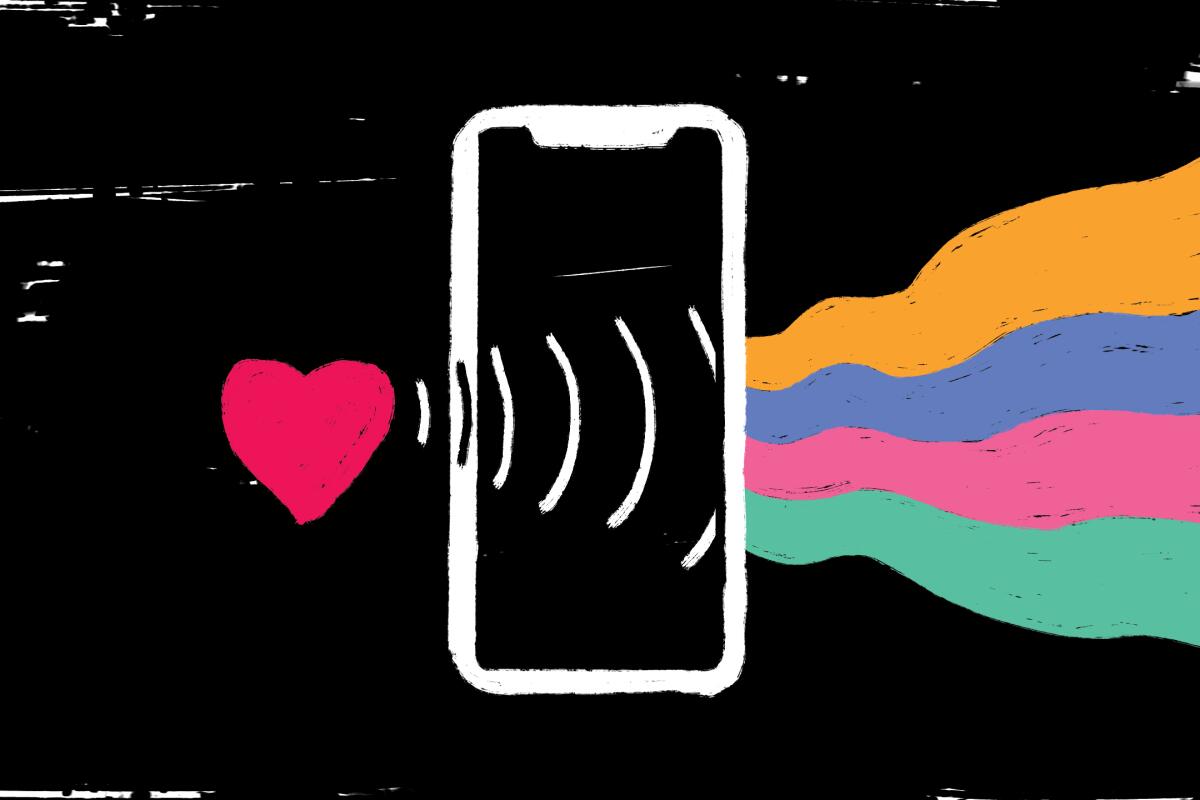No IRL hookups? This might be the perfect time for online dating

- Share via
Scott Lawrence Belton is an active-duty member of the Air Force and recent transplant: He just relocated to the Los Angeles Air Force Base in El Segundo from Florida. The 40-year-old had hoped to start making local friends — and maybe find a few dates — after settling in.
But amid the current coronavirus outbreak, Belton finds himself even more alone, telecommuting in an unfamiliar city where bars and restaurants — the places he’d most likely meet someone — are closed.
So he’s turned to Tinder.
“I am in a weird situation because I have to stay within a 200 mile radius [of the base], but I don’t know anyone within that 200 mile radius,” Belton explained in a message on Tinder.
His bio on the dating app further detailed his predicament: “Maybe I should get a girlfriend. Within this ‘Coronavirus Shutdown,’ I don’t know what to do! I can’t go to the gym or restaurants? I just moved to California so now I have to resort to meeting people online.”
Belton represents an untold number of people exploring virtual alternatives to social interactions and intimacy during a time of unprecedented social distancing. Of course, these measures were put in place to help keep everyone safe. That doesn’t make the rules any easier to follow.
Popular dating apps have taken note, with companies like Coffee Meets Bagel advising users to adhere to social distancing actions and other safety precautions while also encouraging digital date ideas, like video dinners.
Bumble user Kaitlyn Fraser, 20, of Niagara Falls, Canada, tweeted that her recent FaceTime date with a match also marked her first ever date. She had originally planned to meet for drinks at a bar on St. Patrick’s Day, but Canada’s bar and restaurant shutdown inspired her to change not only the venue, but also her outfit — she opted for more comfortable pieces — and her first date expectations.
“A lot of people worry about a kiss at the end of the first date, like how does that work?” Fraser said in a phone interview. “So it kind of felt good that I didn’t have to be nervous over that.”
While sudden changes to social interactions have inspired a re-imagining of existing dating apps, they’ve also led to OKZoomer, the first dating app launched during and in response to COVID-19 quarantine efforts, aimed at college students.
Yale University juniors Patrycja Gorska and Ileana Valdez and Southern Methodist University graduate Jorge Valdez unveiled their timely creation on March 13, providing quarantined college students with opportunities to date in the wake of school closings worldwide. Valdez claimed that the venture has scheduled about 9,900 dates and garnered more nearly 13,000 unique sign-ups since its launch.
“College is one of the only times that people can be connected with a wide pool of people they have connections with; because of the new social distancing restrictions they are no longer able to do that,” the co-founder said in an email. “OKZoomer was created to use the free time people currently have to help them build connections that will last beyond the distance, the social distance.”
And yet a drastic shift in IRL (in real life) culture does not necessarily guarantee a shift in online dating culture, which has played a prominent role in modern-day love and relationships long before the coronavirus outbreak.
Brian Petillo, 28, of East Hollywood, who is a documentary producer, has found that online dating has only worsened the stress and anxiety stemming from his social distancing efforts. “I’m not socially out there typically,” he said in a phone call. “This just makes it even harder.”
He had rejoined Tinder after a recent heartbreak but prior to California’s shelter-in-place actions. Now, swiping in a time of weighted loneliness, the downsides of online dating — low matches and flaky, fleeting conversations — have the potential to strike users’ self-esteem much harder than before.
Petillo also touched on a specific factor that is much more difficult, if not impossible, to replicate on any virtual platform.
“I could have a great relationship with someone and be texting with them constantly and on the phone with them constantly, but you miss the intimacy,” he said. “There’s something about being with someone physically, you know? Even if you’re not doing anything physical together, there’s still something about being with somebody in person.”
More to Read
Sign up for The Wild
We’ll help you find the best places to hike, bike and run, as well as the perfect silent spots for meditation and yoga.
You may occasionally receive promotional content from the Los Angeles Times.










